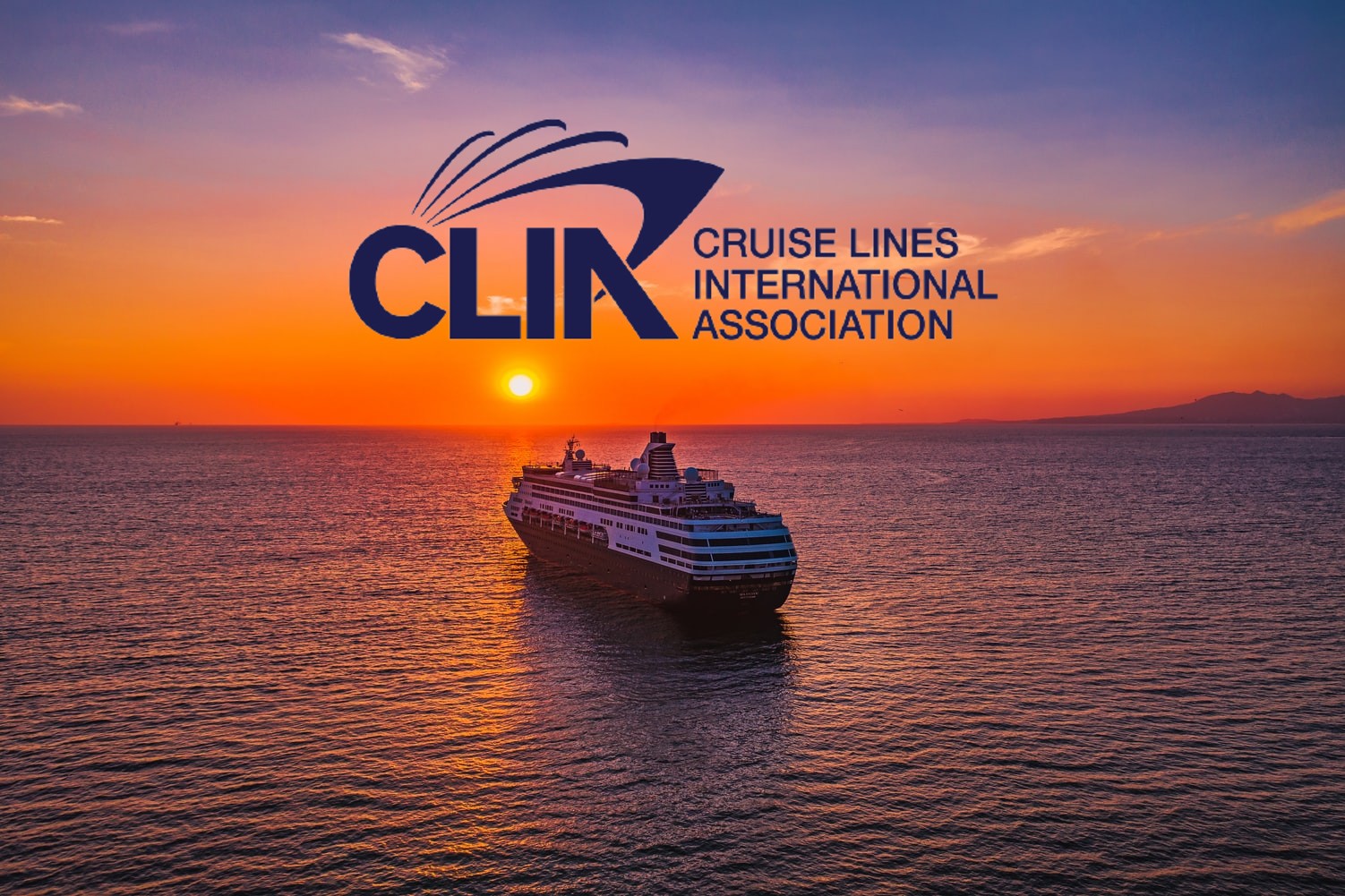Table Of Content
- More news from the world of cruising
- becomes more efficient as our member lines embrace new technologies, innovations and, as
- This Is How Silversea’s New Silver Nova Will Be One of the Most Sustainable Cruise Ships
- What: CLIA’s Report Gives Comprehensive Overview of Cruising’s Past, Present and Future
- View All Health
- My Services
“While our focus on health and safety remains absolute, our industry is also leading the way in environmental sustainability and destination stewardship. As we enter the third year of the pandemic, CLIA and our members have been working hard to build back operations to pre-pandemic levels. While the health and safety of crew, passengers and the places cruise ships visit remain the number one priority, our industry is also focused on leading the way in environmental sustainability. CLIA provides an important and unified voice for the global cruise line industry representing cruise lines, suppliers, business partners, and a robust travel advisor community.
More news from the world of cruising
2024 State of the Cruise Industry Report Shows Cruise Tourism Has Surpassed Historical Levels, Demonstrates its ... - PR Newswire
2024 State of the Cruise Industry Report Shows Cruise Tourism Has Surpassed Historical Levels, Demonstrates its ....
Posted: Tue, 09 Apr 2024 15:30:00 GMT [source]
Our data shows a step change in the uptake of new environmental technologies by our cruise line members,” said Kelly Craighead, CLIA’s President and CEO. Cruise Lines International Association (CLIA)’s latest Cruise Industry 2022 Outlook Report, which was released today, provides an in-depth look at an industry that has been (and still continues to be) heavily impacted by the COVID-19 pandemic. Highlights from the report include updates on the segment’s mission to become more sustainable; details on cruising’s effect on the global economy; and expert reflections from key cruise industry stakeholders. Cruise Lines International Association (CLIA), the leading voice for the global cruise industry, announced the promotion of Donnie Brown to Senior...
becomes more efficient as our member lines embrace new technologies, innovations and, as
Several cruise ships are using liquefied natural gas (LNG) as the cruise industry prepares for a future powered by sustainable, renewable energy sources. Ships built with LNG engines and fuel supply systems can switch to bio or synthetic LNG in the future with minimal or no modifications. "This report shows that the cruise industry is resilient, innovative and focused on the future" said Pierfrancesco Vago, Chairman of CLIA Global. One priority is to get cruise capacity back to pre-pandemic levels by reactivating 100 per cent of the fleet by mid-summer 2022, allowing us to employ more than one million people and contribute billions of dollars to world economies.
This Is How Silversea’s New Silver Nova Will Be One of the Most Sustainable Cruise Ships
CLIA is the world's largest cruise industry trade association, providing a unified voice and leading authority of the global cruise community. On behalf of its members, affiliates, and partners, the organization supports policies and practices that foster a secure, healthy, and sustainable cruise ship environment, promoting positive travel experiences for the more than 30 million passengers who have cruised annually. CLIA represents 95% of the world’s ocean-going cruise capacity, as well as 54,000 travel agents, and 15,000 of the largest travel agencies in the world.
View All Financial Services & Investing
We’re monitoring the circumstances around the pandemic closely and continue to make decisions by prioritising public health. While there is no crystal ball, I can tell you that the enhanced protocols are here to stay for the foreseeable future. I can also tell you that in January 2022, cruise ship review site Cruise Critic surveyed 1,563 travellers who had taken a cruise in the previous 90 days – during the peak of the Omicron wave – and 96 per cent said they felt safe onboard, while 88 per cent said they would sail again under the same circumstances. As we move towards Covid-19 being an endemic virus, we expect to see changing guidance from health authorities around the world. Our job is to ensure that decision makers have the evidence they need to make good, science-based decisions that are consistent with the shoreside practices that guide land-based travel and tourism. In the next five years, 15% of new build cruise ships entering service are anticipated to be equipped with battery storage and/or fuel cells to allow for hybrid power generation.
More cruise ships feature advanced wastewater systems in 2023
There’s no doubt that the Omicron variant cast a great deal of uncertainty into the travel and tourism sector overall. However, CLIA’s ocean-going cruise line members are sailing with some of the highest levels of Covid-19 mitigation measures of any industry. Many introduced additional measures for Omicron, strengthening testing, mask-wearing and other requirements, and encouraging or mandating booster vaccine doses for eligible guests. Our members are developing innovative solutions to meet CLIA’s ambitious decarbonisation goals, and they are already having a significant impact. They include advanced recycling protocols, waste-to-energy initiatives, energy-efficient ship design, pursuing alternative fuels, supply chain sustainability programmes, and much more.
Our own member cruise line websites also provide a great source for rigorous, layered protective measures. Cruising is accessible, responsible and experiential – making it the best way to see the world for people of all ages and interests. "I would also like to thank Mr. Vago for his leadership as chair over the past three years, navigating challenging times and creating a solid foundation for the industry's future growth," Craighead added.
CLIA member cruise lines have committed to a 40% reduction in the rate of carbon emissions across the global fleet by 2030, compared to 2008, consistent with the International Maritime Organization's (IMO) carbon intensity reduction level of ambition. CLIA publishes regular reports analysing the economic impact of the cruise industry on economies. The cruise industry has proven its resiliency throughout its more than 50-year history, and as operations continue to responsibly resume, passenger demand remains high. In the baseline forecast, passenger volume is expected to recover and surpass 2019 levels by the end of 2023. And in the upside forecast, passenger volume is expected to recover to 101 per cent of 2019 levels by the end of 2022. In both scenarios, passenger volume is projected to recover in excess of 12 per cent above 2019 levels by the end of 2026.
My Services

CLIA’s integrated government affairs and strategic communication efforts have been central to the industry’s success. Liquified Natural Gas (LNG) Fuel – As the cruise industry anticipates the transition to a future of sustainable, renewable fuels, several cruise ships are utilizing liquified natural gas (LNG). Ships designed with LNG engines and fuel supply systems are able to switch to bio or synthetic LNG in the future, with little or no modifications. The 2023 order book data shows that cruise lines continue investment in new vessels with 44 new ships on order during the next five years, representing an investment of $62 billion since 2019. Of these new ships, 25 will be LNG- powered and seven will be either methanol ready on delivery, or methanol capable, representing an investment in new engine technologies that will accelerate the maritime transition towards a future of low to zero carbon fuels.

Additionally, shouldbecruising.com participates in various other affiliate programs, and we sometimes receive a commission from purchases made through our links. Cruise Lines International Association (CLIA) has released its 2023 Global Cruise Industry Environmental Technologies and Practices Report, demonstrating the sector’s tangible progress in advancing its environmental and sustainability objectives. Michael Akana, a travel advisor based in Half Moon Bay, California, was named this year's Elite Cruise Counsellor of the Year. The honor is given to an individual CLIA member who has earned Elite Cruise Counsellor or Elite Cruise Counsellor Scholar status—the highest level of certification offered by CLIA. They must also have met sales requirements and made a contribution to the travel agent landscape.
About the Cruise Lines International Association (CLIA)Cruise Lines International Association (CLIA) is the preeminent cruise trade association, providing a unified voice for the industry and its members as the leading authority of the global cruise community. Together with its members and partners, CLIA supports policies and practices that foster safe, secure, healthy and sustainable cruise operations; tourism strategies that maximise the socioeconomic benefits of cruise travel; and technologies and innovations that protect and preserve our planet. CLIA represents 95% of the world’s ocean-going cruise capacity, as well as 54,000 travel agents, 15,000 of the largest travel agencies in the world, and industry stakeholders, including ports, destinations, ship developers, suppliers, and business services.
We also aim to continue leading the travel and tourism sector in Covid-19 risk mitigation efforts, and stay on course to achieve our goal of pursuing carbon-neutral cruising by 2050. In January 2022, CLIA released its annual state of the Industry report and demonstrated how the industry is driving innovation for a more efficient future. By 2027, CLIA’s fleet will have 26 LNG-powered ocean-going cruise ships and 231 of its vessels will be equipped with advanced waste water systems, 176 will have exhaust gas cleaning systems, and 174 ocean-going cruise ships will be fitted with shore power capabilities. WASHINGTON, Jan. 19, 2024 /PRNewswire/ -- Cruise Lines International Association (CLIA), the leading authority of the global cruise industry, today announced that Royal Caribbean Group President and CEO Jason Liberty has been appointed Chairman by its Board of Directors. “Already today cruise lines are building the ships of the future which will run on new, more sustainable engine technologies. The introduction of these new technologies and the many pilot programs and trials in place reveal how the cruise industry is an innovator and early adopter of technologies that are helping us sail to a more sustainable future,” Craighead continued.
Alternative fuel sources to heavy fuel oils being developed include biodiesel, methanol, ammonia, hydrogen, and electric batteries. The report notes that there remain engineering, supply, and regulatory hurdles before the large-scale adoption of such fuels can take place, but the cruise industry's growing investment in new ships is facilitating the research and development of these fuels. The availability of sustainable marine fuels is critical to reaching the maritime industry’s decarbonization targets, underscoring the importance of governments supporting research efforts to accelerate the development of these fuels so that they are safe, viable, and ready for use. CLIA reports that cruise lines are pursuing fuel flexibility, investing today in propulsion systems with conversion possibilities for the future. Currently, 32 pilot projects and collaborative activities are underway with sustainable fuel providers and engine companies. A new environmental data report from Cruise Lines International Association confirms progress in the cruise industry’s uptake of new environmental technologies.
New MMGY-CLIA-Travelzoo study delves into what first-time US cruisers want - Seatrade Cruise News
New MMGY-CLIA-Travelzoo study delves into what first-time US cruisers want.
Posted: Mon, 15 Apr 2024 13:31:45 GMT [source]
Today, Cruise Lines International Association (CLIA), the leading voice of the global cruise community, has released its annual State of the Cruise... The cruise industry supports the long-term objectives of the EU Green Deal and is committed to pursuing net carbon neutral cruising in Europe by 2050. At the height of the Omicron surge, the hospitalisation rate on cruise ships was more than 80 times lower than on land in the USA. The PBI Research Institute’s analysis from 30 December 2021 to 12 January 2022 shows only five hospitalisations occurred among the more than 416,000 passengers and crew sailing in US waters – equivalent to 34 per 100,000 Covid-19 cases. In stark contrast, there were 269,067 new land-based hospitalisations in the USA during the same period, equivalent to 2,786 per 100,000 Covid-19 cases. Hence, those aboard cruise ships demonstrably faced vastly less risk of hospitalisation from Covid-19 than those on land in the USA.

No comments:
Post a Comment